Chaucer
This is a section about The Consolations of Philosophy translated by Geoffrey Chaucer.

De Consolatione Philosophiae (Latin, “on the consolation of philosophy“) is a celebrated Latin work in prose and verse, written by Boethius about 525 A. D. It was translated into Anglo-Saxon by Alfred the Great. Chaucer translated it into English prose before 1382. Caxton published it in 1480.
The Consolation of Philosophy was written by Boethius while in prison awaiting execution. It a moving meditation, written from the heart, written by an intellectual in an age of barbarism, as he contemplates his fall from power and his impending doom. Chaucer's translation was influential in introducing Boethius's neo-classical, and probably pagan, philosophy into medieval England, and helped revive interest in classical literature and thought.
It is a measure of Chaucer's erudition, in an age when most were illiterate, that he was able to translate a sophisticated work of Latin philosophy, written in a sophisticated but dead language, into the vibrant language spoken by the English people of Chaucer;s day. In so doing, Chaucer re-opened a link to the past and help revive learning and philosophical enquiry, thereby contributing to the sparks that started the Renaissance. It is perhaps ironic that today, because of changes in language, Chaucer's own work require's translation and explanation in order to fully understand and appreciate it.
Canterbury Tale Summaries
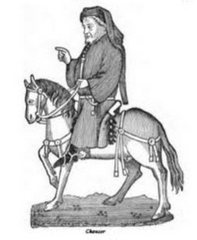
Geoffrey Chaucer

The Wife of Bath's Tale

The Miller's Tale

The Shipman's Tale
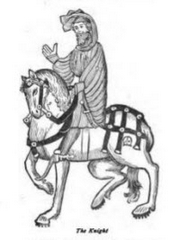
The Knight's Tale

The Summoner's Tale
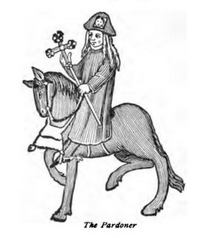
The Pardoner's Tale

The Prioress's Tale
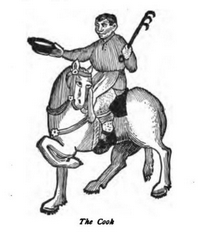
The Cook's Tale

The Monk's Tale

The Merchant's Tale
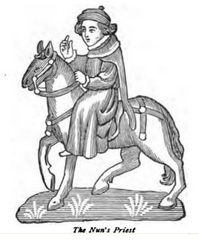
The Nun's Priest's Tale

The Franklin's Tale
Main Page | Site Updates | Privacy Policy | Site Map | XML Map | RSS | Contact | About
Canterbury Tales
